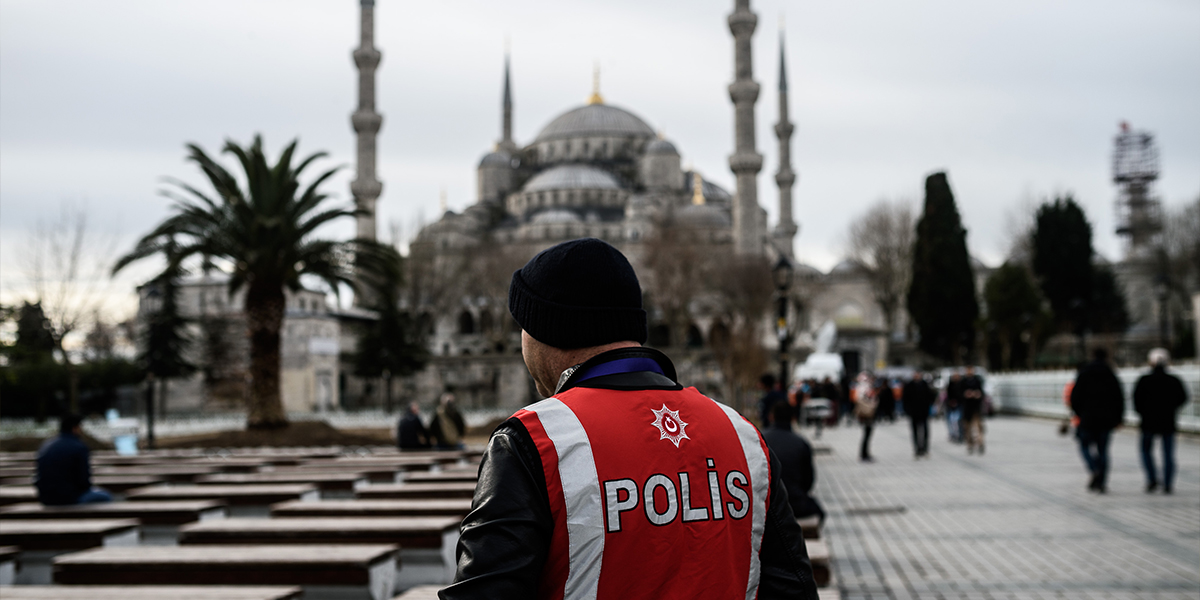
Intellectual Selectiveness and Double Standards on Terror
Share
Over the course of world history, marred with sophisticated conflicts, the issue of defining "terrorists" threatening public security versus "freedom fighters" standing for the endemic rights of their people has always been controversial. The vantage points, interests and strategies of those who analyze the conflicts usually have a bearing on the kind of definition they prefer. Hence the usage of the term "terror" for the first time by the British colonial administration in Kenya against the members of the independence movement who threatened their dominance over the country.
When it comes to the recent predicament that Turkey is experiencing in its fight against multiple terrorist organizations such as the PKK, DAESH and Revolutionary People's Liberation Party Front (DHKP-C), the issue of defining terrorism seems to have acquired added ambiguity and selectiveness. For years, Ankara was accused of providing safe passage and logistical support to DAESH in Syria because it stood firm with the moderate opposition fight the regime of President Bashar Assad. President Recep Tayyip Erdoğan and the Justice and Development Party (AK Party) governments were stigmatized in domestic and international media as de facto allies of DAESH in the region, implicitly pointing to their conservative Islamic identity. Following Turkey's collaboration with the U.S. and the international military coalition against DAESH, the material basis for justification of these allegations very much eroded. Moreover, Ankara's fight against DAESH elements both in Turkey and abroad acquired praise from Western intellectuals and media circles.
But the selectiveness of the domestic opposition and international media pundits in reporting and responding to the terrorist acts perpetrated by the PKK clearly display a double standard. As is known, Ankara maintained a reconciliation process with the PKK and as a result of which, socio-cultural rights and local for the Kurdish community were substantially expanded. Yet the process was interrupted by the PKK following the June 7 general elections with a series of terror attacks across Turkey. Furthermore, the centers of towns in the southeast such as Diyarbakır, Nusaybin, Silvan and Cizre were practically invaded by PKK terrorists who forced their way into people's homes and forced civilians to leave the region. The terrorists dug trenches at the entrances of main roads, placed booby traps in houses, constructed tunnels under the houses and practically turned the areas into urban warzones. It was only when the civilian population started to move out in the thousands that Turkey's security forces decided to initiate operations to re-establish law and order in a region in chaos. Therefore, when 1,128 opposition-minded Turkish academics(with the support of a wide entourage of left-wing international intellectuals announced a declaration that accused the Turkish state of invading the areas where Kurds live, committing slaughter and deporting civilians, our true feeling was one of real shock and bewilderment.
The declaration unfortunately reflected a totally distorted and partisan reading of the developments on the ground, as security forces were trying to rescue the lives of thousands of civilians stuck in conflict areas without food, water and heating through the operations. Second, the declaration sadly revealed that some of the leading Turkish academics were not able to follow the domestic transformation of the Turkish state from an oppressive, Kemalist and authoritarian political mechanism into a more liberal, tolerant and pluralistic entity against the Stalinist conservatism of the PKK. When it comes to those intellectuals who supported the declaration from abroad such as Noam Chomsky or Immanuel Wallerstein, we know that the global left had long-term sympathy with the plight of the Kurdish people and so wrongly turned a blind eye to the terrorist activities of the PKK. But the truth of the matter is that dramatic changes took place in the Middle East since the 1970s and 1980s as a result of which PKK and its Syrian affiliate Democratic Union Party (PYD) became part of a larger subcontracting terrorist network playing into the regional plans manipulated by global powers. If the intellectual community harbors minimal levels of honesty and integrity, it is the right of Turkish society to expect condemnation against all kinds of terrorist acts perpetrated by the PKK, DAESH or any other terrorist organization, rather than double standards and selectiveness.
[Daily Sabah, January 16, 2016]
Tags »
Related Articles







